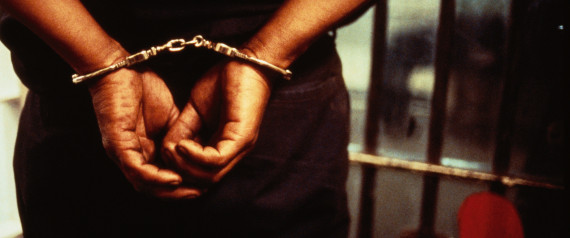↓R↑LYB
I trained Sheng Long and Shonuff
1 In 3 Black Males Will Go To Prison In Their Lifetime, Report Warns
Posted: 10/04/2013 3:24 pm EDT Updated: 10/04/2013 3:38 pm EDT

One in every three black males born today can expect to go to prison at some point in their life, compared with one in every six Latino males, and one in every 17 white males, if current incarceration trends continue.
These are among the many pieces of evidence cited by the Sentencing Project, a Washington, D.C.-based group that advocates for prison reform, in a report on the staggering racial disparities that permeate the American criminal justice system.
The report was submitted to the U.N. Human Rights Committee this week in advance of the U.N.’s review of American compliance with the International Covenant on Civil and Political Rights later this month. It argues that racial disparity pervades “every stage of the United States criminal justice system, from arrest to trial to sentencing.”
“Racial minorities are more likely than white Americans to be arrested,” the report explains. “Once arrested, they are more likely to be convicted; and once convicted, they are more likely to face stiff sentences.”
The report's findings lead its authors to conclude that the U.S. is violating the International Covenant on Civil and Political Rights, which states that all citizens must be treated equally under the law. The U.S. ratified the treaty in 1992.
Central to the report’s argument is the simple fact that African-American and, to a lesser extent, Hispanic men, are more likely to spend time behind bars than their white counterparts, according to recent data from the U.S. government.
The reasons for this discrepancy are widely debated, but the report discourages readers from blaming either the higher-than-average crime rate among blacks and Latinos in the U.S. or the presence of deliberate racism in the criminal justice system.
While those factors may contribute to the problem, the reasons go much deeper, the report contends.
The problem begins with police activity. According to Justice Department data cited in the report, police arrested black youth for drug crimes at more than twice the rate of white youth between 1980 and 2010, nationwide. Yet a 2012 study from the National Institute on Drug Abuse found that white high-school students were slightly more likely to have abused illegal drugs within the past month than black students of the same age.
Blacks are also far more likely than whites to be stopped by the police while driving. The Sentencing Project report largely attributes the racial disparities in both traffic and drug arrests to “implicit racial bias” on the part of the police.
“Since the nature of law enforcement frequently requires police officers to make snap judgments about the danger posed by suspects and the criminal nature of their activity, subconscious racial associations influence the way officers perform their jobs,” the report contends.
The disparities don’t end with arrests. Because blacks and Latinos are generally poorer than whites, they are more likely to rely on court-appointed public defenders, who tend to work for agencies that are underfunded and understaffed. In 2012, according to the U.S. Government Accountability Office, more than 70 percent of public defender offices reported that they were struggling to come up with the funding needed to provide adequate defense services to poor people. By last March, the problem was so bad that Attorney General Eric Holder declared the public defense system to be in a "state of crisis.”
Racial disparities within the justice system have been exacerbated by the war on drugs, the report argues. The drug war led the country’s population of incarcerated drug offenders to soar from 42,000 in 1980 to nearly half a million in 2007. From 1999 to 2005, African Americans constituted about 13 percent of drug users, but they made up about 46 percent of those convicted for drug offenses, the report points out.
Marc Mauer, director of the Sentencing Project and an author of the report, said he’s optimistic that the country’s criminal justice policies are starting to change. “There’s much that needs to be done, but we haven’t seen this much progress around these issues in quite some time,” he said.
He mentioned the Justice Department’s recent decision to scale back the war on drugs and a series of bipartisan state laws aimed at reducing harsh prison sentences for low-level drug offenders.
The report offers 10 specific steps that the U.S. could take to cut down on such disparities, including fully funding the country’s public defenders, prohibiting law-enforcement officials from engaging in racial profiling and establishing a commission to develop recommendations for “systemic reform” of the country’s police bureaus and courts.
Whether the U.N. review could contribute to these changes isn’t clear. Even if the U.N. finds the U.S. to be in violation of the treaty, the range of repercussions is essentially limited to scolding.
Still, Mauer said, “It’s a question of making a moral statement."

 yall knocks aint gettin me. No kids, no felonies.
yall knocks aint gettin me. No kids, no felonies. 

